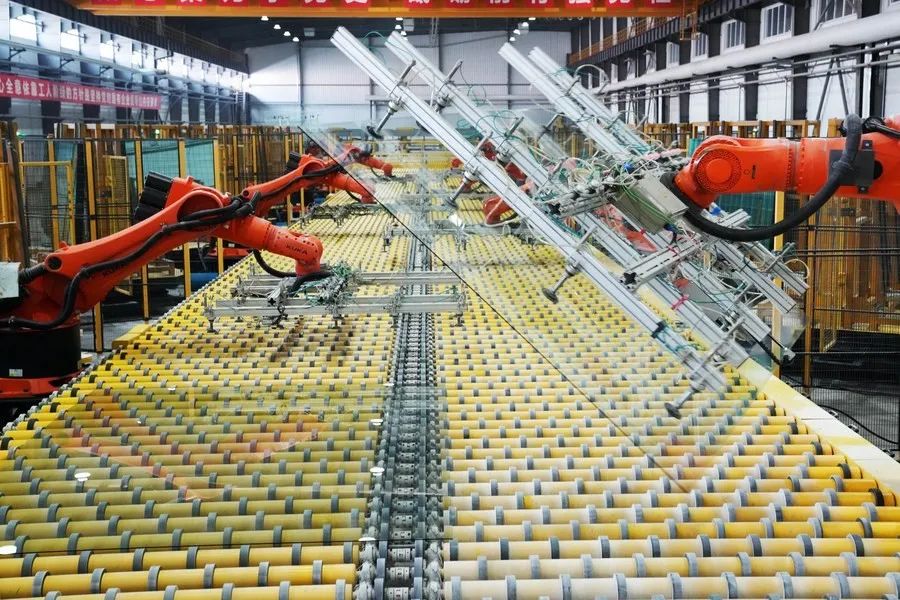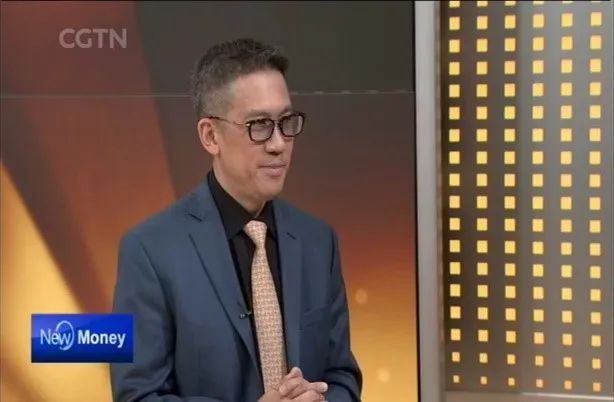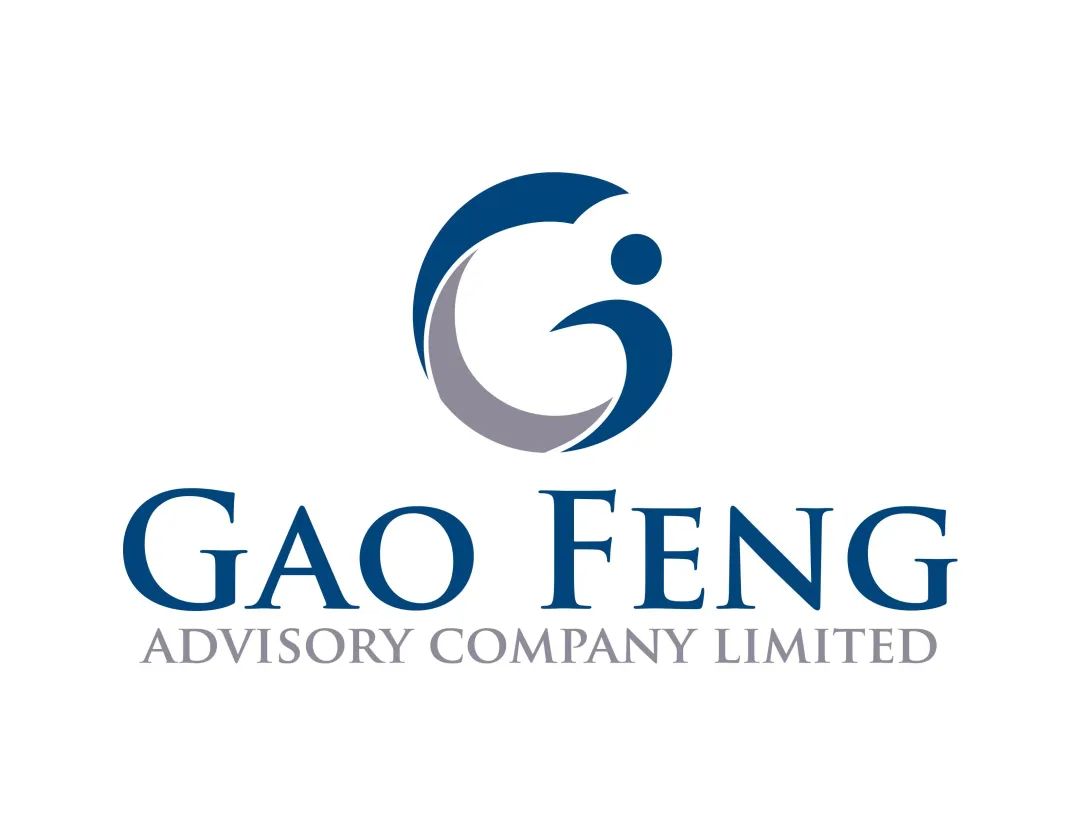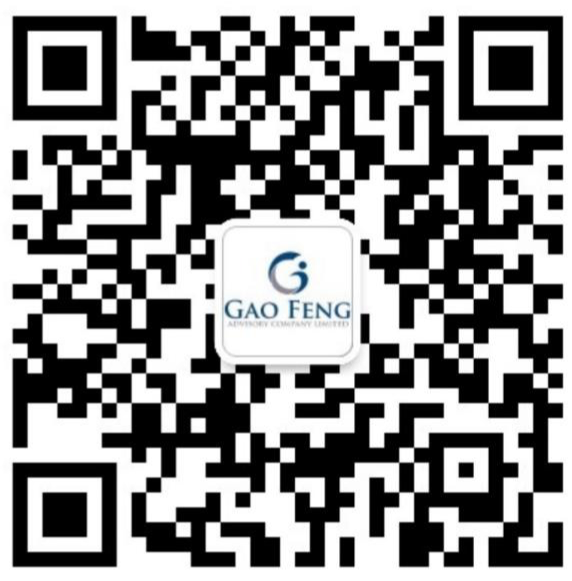China's Technology Development and How it Shapes the World

An Interview with Andy Mok
February 2023
Preface
On 7th February 2023, I spoke with Andy Mok, a senior research fellow at the Center for China and Globalization (CCG), who is currently writing a book on China and the development of disruptive technologies. We had an incredible discussion on the past, present and future of China’s development and how it is shaping the world today.
Edward Tse (hereinafter Ed): Hello, everyone. My name is Edward Tse. I’m with Gao Feng Advisory Company. We are a strategy and management consulting firm with roots in China. Today, I’m very pleased to have an important guest on our show to share his thoughts on his new book on areas related to development of technology and innovation in China. His name is Andy Mok. I think many of you would know Andy because he's a frequent guest on CGTN, Aljazeera, BBC, NBC and a few others too, right?
Andy Mok (hereinafter Andy): Absolutely.
Ed: Andy is a senior research fellow at the Center for China and Globalization (CCG) in Beijing. He comes with a lot of experience. If you see his title, he is working in a think tank. But Andy, before you joined CCG, I believe you were in the venture capital industry and you were engaged in investments in the technology area too, isn't it?
Andy: Yeah, that's right. I actually worked in both venture capital and private equity, making investments in media, health care and education, and all of these have a strong technology component.
Ed: So you know technology well and you've been in China for how long now?
Andy: I've been in Greater China since the early 1990s, so quite a long time.
Ed: 30 years! And the focus of your most recent research is technology and how technology would impact relations between the great powers. Could you elaborate a little more your current focus of attention?
Andy: Sure. And thank you for your very kind introduction. As you said, I’m a senior research fellow at the Center for China and Globalization, which is an independent think tank headquartered in Beijing, China. The think tank focuses on globalization issues, largely around economics, trade, investment and labor. I focus on technology and its impact on relationships among great powers. And of course, these days that means a lot of China-US relations, as we all know. I’m sure the impact of technology too is at play.
But it's also a little broader than that. I looked at what's going on in Europe, and more general cases. Just like knowledge in its various forms, I think technology can disrupt or reset the balance of power. We've seen many examples of that throughout the human history. There are more subtle ways technology impacts or disrupts. We can look at how technology might change communications, going back 2,000 years to the invention of paper that allowed the Han dynasty to better manage a more powerful and bureaucratic state to things like TikTok today. It might change how people interact and think about the world. So I actually cover quite a broad area in terms of technology when we think about how technology can impact relations among great powers.
Ed: The new book that you're writing is apparently based on what you just mentioned to me. I get the sense that you are tracing history all the way back to the past of China and the present and then project the future of technology in China, and also the impact of that on China’s relations with other great powers, right?
Andy: That's right. I’m working on a book now. In fact, I’m in Cambridge, England at the University of Cambridge doing research for this book. The working title of the book is China and Technology: Past, Present and Future. What I’m doing is going back more than 2,000 years to the Han dynasty, start there and look at how China's history, values and views continue to shape political decisions today, and how they shape decisions for technology development. As we all know, China has grown remarkably over the last 40 years, and it's also becoming an increasingly important source of technology. So by doing so, my hope is that we can better understand the technology development taking place today in China and how it will affect the world’s technology development and the world’s geo-political situation.
Ed: That's incredible! I have written a book on Chinese innovation myself called China’s Disruptors which was published in 2015. In that book, I have written that Chinese entrepreneurs were really effective in creating Chinese innovation, up to that point. And between 2015 and today, I say that innovation has continued to evolve, and China continues to produce many new forms of innovation. Certainly, there's a trend there. And I think Andy you have picked up a very good theme, because I think the rest of the world really needs to understand it.
Just coming back a little bit, why do you think this book is necessary? And who do you think should read this book?
Andy: Sure. I think yours is an excellent book about entrepreneurs in China and I think it follows a more Western narrative of how innovation happens: there's usually a scientific technical genius who works very hard and has a technological breakthrough that changes the world. But I believe and the evidence clearly shows that this understanding of how innovation happens is incomplete.
When we look at the breakthrough inventions in China, starting with the great inventions of ancient times like paper and printing and coming forward to modern times, we see that in fact in China, politics is often the catalyst for key innovations. The people who are most responsible for these technological breakthroughs are not scientists, but they are politicians and bureaucrats. I believe the world needs a more complete understanding of how innovation happens, so that they can better predict what will happen next. So this book is to help government officials, policy makers, business executives and investors comprehend what triggers technological advancements.

I had worked in private equity and venture capital, and I think you also know very well that working with some of the most successful companies in the world, one of the most valuable things business executives and investors need is to see a step ahead in anticipating what's going to happen next. So I hope that this book will help people see a little further and better predict what will happen next in the global technology ecosystem.
Ed: Right, why didn't you write this book 5 years ago? Or delay it for another 5 years? What makes this book so important at this particular point of time from your viewpoint?
Andy: I think there are a couple of reasons. First of all, we know how tense the China-US relationship is getting. And the core of it really is around technology. The US has announced a new package of technology sanctions against China. I think this is a recognition of just how important technology is. And it is a huge geopolitical issue. So I believe this is a good time to share some of these thoughts in order to help better understand what might happen next. From my personal perspective, working in venture capital and private equity, I really saw a lot of misconceptions in the West about China. And I feel like now, having accumulated more than 30 years of experience, it would be a good time to synthesize and share some of these personal observations and juxtapose them against these broader geopolitical trends that we are all experiencing.
Ed: In your book, would you try to investigate the possibility of China taking on the global technology leadership? And if so, how should people interpret that? What should people think about if China becomes the world leader in technology?
Andy: I think this is a very big, complex question. Attention is focused more on technology itself. I’m sure you appreciate that and you're also working on projects related to this. But if we dig a little deeper and look at Chinese values on how technologies are applied in different products for different purposes. It's not just scientific research. China has had a number of very exciting breakthroughs in recent years. How do these get turned into products that people buy? I think one way to understand it is things like Confucianism's influence on Chinese education. It's hierarchical. And from the perspective of values, it's based on benevolence. This is very important.
Just a quick aside, let's look at the Belt and Road Initiative, which gets a lot of negative coverage in the Western press. For instance, some say that the initiative is a debt trap. But there are two aspects I think the Chinese will look at. One, as I mentioned, is benevolence from Confucianism. The other is pragmatism. And this comes from a world view, where, as the French sinologist Marcel Granet, says, Chinese wisdom has no need for the idea of God. This means that the Chinese tend to be very practical, because if you believe in an afterlife and a God, you're striving to get to heaven. This can lead you to do some very irrational and destructive things in the world today. If you don't believe there’s any other world, you act more pragmatically. This may not always be good either but this is a feature of the way the Chinese look at the world.
Let me go back to the Belt and Road Initiative with this. There’s a benevolent view that China wants to be a good player, and the most pragmatic thing one can do is recognizing the importance of infrastructure, whether that's roads, sanitation, water, electricity or railways. I think many people that live comfortable lives in the developed world might not realize this because they take it for granted. In infrastructure it is vitally important to improve the lives of people rather than promoting high-flown ideas like “human rights” or “democracy” for instance. These are not inherently bad things, but the Chinese look at it and say, what matters right now is people can have clean running water, electricity, sanitation, roads, and railways. These are the things that matter.
So when we apply that to technology, this is something that needs to be paid attention to. Chinese scientists are working on how these technologies can be translated and converted into products and services that boost people's lives. If we go back and look at Chinese values, the Chinese system and Chinese point of view again, these will help us predict failure and also contribute to a more complete understanding of China today.
Ed: Indeed. A lot of people have been talking about technology and innovations in China and some do have relatively negative views, while some are more positive. Very few of them can relate the “hard stuff” - technology and innovations - to the soft stuff, which is what you've been talking about - values, cultures, and so on. And what prompted you to come up with this concept? Why do you think that this concept is so powerful that the world needs to understand it better?
Andy: I think there are two reasons, maybe I could call them intellectual motivation or inspiration for writing this book. So again, as someone that grew up in the US, and has a very good understanding of America and American society, and yet understands China and the way Chinese people think, I’ve always thought that there's this gap in understanding. From a technology perspective, more than 20 years ago I arrived in Beijing as a venture capital associate with the mandate to tap into this seemingly endless virgin opportunity in China. At the time, the most sensible thing was to look for companies in China that could be the next Google, the next Microsoft. And at the time, eBay was very popular in the United States, with the C2C model, which meant consumer to consumer. But it also meant “copy to China,” which made sense for Chinese companies at the time, because China was not quite at the level it is today. But what struck me was just how many investors and entrepreneurs in the US and the developed world believed that China could never never innovate.
I was simply stunned by this kind of thinking. Even though we have WeChat, which is truly revolutionary, that has become the remote control for our online and offline lives. It is truly transformational in China. There were people who said China can innovate, but only in China. Did WeChat go global? No, it didn't. So, according to this view, this shows the limited ability of China to innovate. Huawei, of course, did became a global technology champion, but it also is a cautionary tale that shows what happens when technology intersects with geopolitics.
The last example I use is why I’m motivated to write this book. A personal life experience is seeing TikTok or ByteDance succeed in these so-called WEIRD (Western, educated, industrial, rich, democratic) countries as a cultural product. Previously, most people would have said it is impossible for a company from China, India, or Indonesia, the less developed world, to succeed in a cultural space in the developed world. And yet they did. So I think people are now starting to be more open to this idea. There really is something important and exciting in the technology space going on in China.
The second intellectual motivation for doing this is that I am in Cambridge doing research. There was a Cambridge scientist named CP Snow, who wrote a very famous lecture essay called the Two Cultures in the Scientific Revolution, where he talks about the gap between the scientists and the “intellectuals”. The idea was that these writers and poets thought they were the only intellectuals, and some looked somewhat dismissively at the physicists and chemists. They would say things like “how much do you know about Shakespeare?” or “how much do you know about Dickens?”, without really recognizing that both scientists and those in the humanities are both part of very important intellectual pursuits.
I think we see similar dynamics between the West and China. So my hope is to not only look at technology and explain it better to a non-technological audience, but also bridge this gap where we can benefit from seeing both. The Chinese way of doing things will drive technological innovation, and the Western approach of Thomas Edison, Alexander Graham Bell, Elon Musk and others is also valuable. We shouldn't look at things only in black and white.

Ed: Certainly, Andy, I think you have taken a very good perspective, sort of combining what people can usually see, i.e., technology and innovation that people can touch and feel the products made with this sort of innovations or inventions. But you also try to relate to things that are more invisible. I think that's really very important because most people outside of China just look at the objects that they can touch and deal with. And they zoom into those objects and comment on those objects based on their own interpretations, on how the objects should behave. But in fact, behind the objects is a deep and broad reservoir of soft aspects with roots in culture and values. That is important for people to understand, because I’m sure as you trace back to Chinese history, the Chinese have actually produced a lot of different lines of thoughts.
Clearly, Confucianism was the predominant school of thought, but there are other streams of thoughts which include the Legalist, which actually compliments Confucianism in governing the country. And there are others such as Daoism and Buddhism, which look more into the way of nature. We're not about humanity, but nature and the relationship between nature and religion and humanity.
In other words, Chinese culture is very broad and inclusive and it can absorb new ideas. There's a need to resolve these new elements, and the Chinese have been doing this for 5,000 years. That inclusiveness is the link to many things that we're seeing, including innovation and technology. This reservoir of capability or capacity actually gives rise to these results. I commend you for addressing this issue, because there are a lot of other similar “books”, “reports”, “narratives” out there but you shall differentiate yourself from the rest of the noises. So how do you differentiate yourself from whatever is available in the market or perhaps whatever that would be coming out?
Andy: No, that's a great question. Let me just go back to what you said briefly about China being very inclusive. First, I completely agree, and I would reemphasize that part of this is also very pragmatic. This is one of the hallmarks of what I was thinking of the Chinese. I had dinner a couple of nights ago with Lord Simon McDonald, who is the former the Permanent Under-Secretary at the Foreign and Commonwealth Office and Head of the Diplomatic Service and currently the Master of Christ College at Cambridge. According to him, one of the things that explains why Britain has punched above its weight, technologically and culturally is the ability of the British to get along with each other.
And the ability to live by their wits means being very pragmatic, not dogmatic or ideological. And China, I think, is like that too. I hope my book will be different from others that are out there because it really emphasizes the idea that Chinese values and culture are benevolent and pragmatic. Also, I hope it will be received as being unique in adding value to the scope of history. I'll use Winston Churchill’s quote here, “the further back you look, the further ahead you can see.” My hope is then, by going back a bit more than 2,000 years, looking at some very deep, enduring, and still relevant features that are still affecting China today will continue to affect China. We can see not only further, but also more clearly going ahead. And again, whether you are a government official, a policy researcher, an investor or even if you're a student, I think this book will be useful.
Ed: That's been fantastic, Andy. Thank you for your inputs and it is very inspirational. Could you give our audience the name of your book again? And what is your expected publication date?
Andy: It's expected to be published in September this year. The title has not been finalized yet and I’ll keep an eye out for that, but the working title is China and Technology: Past, Present and Future.

Ed: That's great. And if any in our audience would like to get hold of you by email or WeChat or whatever, how could people find you?
Andy: I’m on LinkedIn and Twitter @andymok. I’m also on WeChat (*Andy’s WeChat QR code is attached at the end). I very much welcome questions, comments from people, journalists, business executives, etc. I am very happy to hear from people.
I really appreciate this opportunity and I have enormous regards and respect for the work that you do. I think this series of interviews you do are incredibly valuable. And I’m deeply honored to have this opportunity today.
Ed: Thank you, Andy. You are a great thought leader on China and the world issues. And I think the world will benefit a lot from hearing more from you. Congratulations on the book and I am also looking forward to your next TV interview.
Andy: Thank you, very kind of you.
Ed: Thank you, Andy. Have a nice day.

About the Interviewee
Andy Mok is a Senior Research Fellow at the Center for China and Globalization where he focuses on technology and its impact on relations among great powers. His current research interests include how advances in technology affect national sovereignty such as challenges posed by cyber security threats, concentration of corporate power, norms around freedom of expression and other issues related to developing policies for effective digital governance at the national and supranational levels. He is a regular commentator on CGTN, Aljazeera, BBC and other media outlets.
About the Interviewer
Dr. Edward Tse is founder and CEO, Gao Feng Advisory Company. He became one of the pioneers in China’s management consulting industry, by building and running the Greater China operations of two leading international management consulting firms (BCG and Booz) for a period of 20 years. He has consulted to hundreds of companies, investors, start-ups, and public-sector organizations (both headquartered in and outside of China) on all critical aspects of business in China and China for the world. He has also advised the Chinese government organizations at different levels on strategies, state-owned enterprise reform and Chinese companies going overseas, as well as to the World Bank and the Asian Development Bank. He is the author of several hundred articles and six books including both award-winning The China Strategy (2010) and China’s Disruptors (2015), as well as the newly published 《变局思维》 (Strategic Thinking in the Era of Mega Changes) (2022).


Gao Feng Advisory
Gao Feng Advisory Company is a professional strategy and management consulting as well as investment advisory firm with roots in China coupled with global vision, capabilities, and a broad resources network
Wechat Official Account:Gaofengadv
Shanghai Office
Tel: +86 021-63339611
Fax: +86 021-63267808
Hong Kong Office
Tel: +852 39598856
Fax: +852 25883499
Beijing Office
Tel: +86 010-84418422
Fax: +86 010-84418423
E-Mail: info@gaofengadv.com
Website: www.gaofengadv.com
Weibo: 高风咨询公司
Previous:Celebrate the Ninth Anniversary ...
